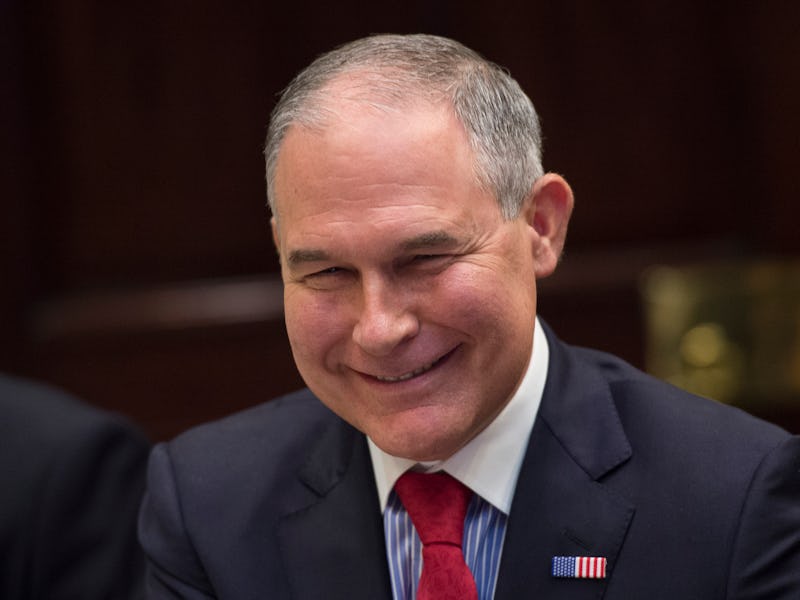Environmentalists Sue EPA's Scott Pruitt To Make Him Do His Job
He won't enforce anti-pollution rules unless a judge forces him.

The Natural Resources Defense Council has sued Scott Pruitt, administrator of the Environmental Protection Agency, for delaying the implementation of regulations that would limit air pollution from garbage dumps, including greenhouse gases that contribute to climate change.
The council and its partners filed the motion in the United States Court of Appeals for the District of Columbia Circuit on Friday. The move comes of the heels of a ruling by that same court that the EPA cannot delay the implementation of a similar Obama-era regulation that relates to limiting methane leaks in the oil and gas industry.
“These are public health and climate protections that are important to people’s health and important to stopping climate change,” David Doniger of the NRDC tells Inverse. “The Trump administration and the EPA’s administrator Scott Pruitt are trying to repeal all of these safeguards.”
The lawsuit claims that Pruitt’s bid to delay landfill regulations is a carbon copy of his bid to delay rules around methane leaks in oil and gas fields. Since the appeal’s court has ruled the later illegal, it should do so for the former by the same logic, NRDC argues.
The bigger picture of this squabble is a quiet war over environmental regulations in the United States that is playing out in large part in the courts. It’s a game that Pruitt learned as attorney general in Oklahoma, where he repeatedly sued the EPA to stop or delay implementation of rules to limit pollution, particularly those aimed at reducing greenhouse gas emissions in the fossil fuel industry.
Now that Pruitt has moved from challenging the EPA to leading it, he is using the tools within his administrative power to cancel or delay the same rules he fought as attorney general, especially those that aim to fight climate change. But he’s not following the proper procedure for making changes to existing regulations, says Doniger.
“He shortcuts all of that, and is just yanking this and many other rules and regulations out of operation.”
Pruitt delayed first the methane leak rules, then the landfill emission rules, in administrative actions that asserted that industry representatives didn’t get a fair chance to have a say before the regulations were inked. The appeals court ruled, in the first case, that the oil and gas industry had their say, and Pruitt was delaying implementation illegally. Now the NRDC hopes the court will do the same for garbage dump pollution.
“We are asking the court to hold him to account,” says Doniger.
The courts are limited in their power to force Pruitt to do his job, but they can slow him down and prevent him from doing what he’d presumably like to do, which is wipe a whole slate of rules that prevent companies from polluting freely off the books with the stroke of a pen.
Pruitt would surely like to see his buddies in the oil and gas industry enriched by his actions as EPA administrator. His success there is likely to be limited, though it’s certain that a fair number of lawyers will make a killing off his EPA reign.